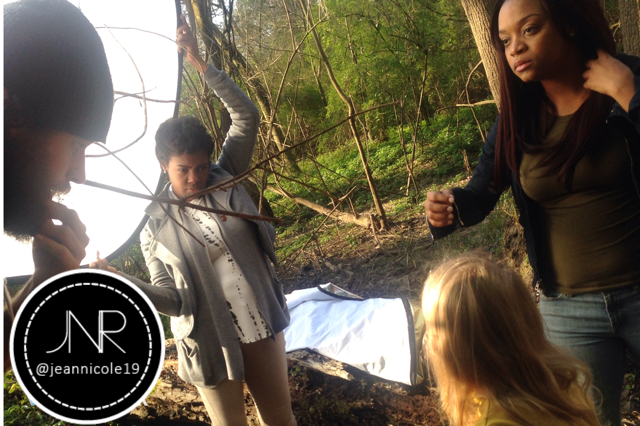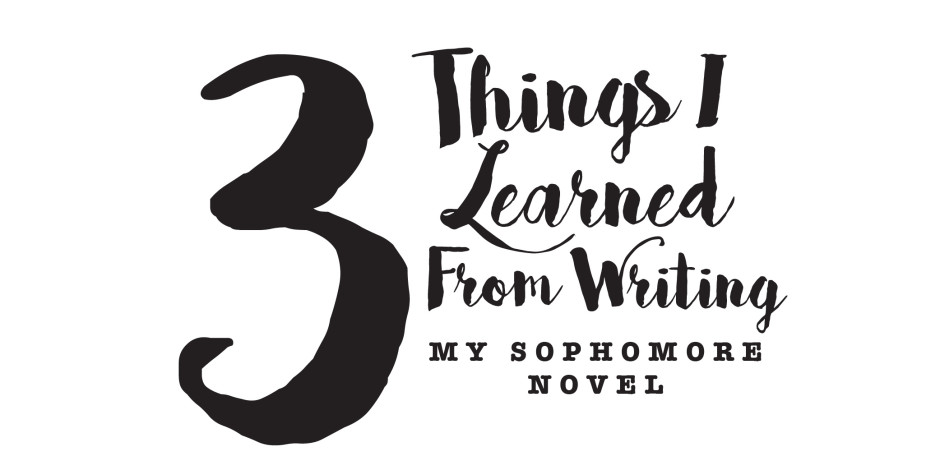
On set for The Unwanted.
As I finished up my sophomore novel, Black Water Tales: The Unwanted, I decided that I should take my marketing plan up a notch by creating a book trailer. Great idea, right? Yes, until I began my research by Googling “book trailers”. Talk about disappointment. Most book trailers (the ones not promoting big-budget authors like Stephen King and J.K. Rowling) were packed with stagnant images rolling languidly across the screen, music that failed to capture the sentiment of the story and bad font, but ALL of this was not even the worst part. When I began researching the companies responsible for these projects and their prices, I nearly fell out of my seat. To get little more than a glorified PowerPoint, prices started no less than $500 (and that was on the low side). For trailers, still simple, but with a more cinematic feel, I was looking at thousands, some of them up to $10K, which is ridiculous and completely out of touch with reality when targeting the indie or small press author.
But lucky for us, there’s a work around.
Because I also have some background in acting, I figured that I could produce my own book trailer and so can you. Check out my book trailer here:
https://www.youtube.com/watch?v=naAt_s6NlfM
Here are some tips for producing your own cinematic book trailer on a budget.
- Keep It Simple: A budget-friendly book trailer is simply NOT the place for moon walks, explosions and high-speed car chases, but uncomplicated does not necessarily equate to unimaginative or valueless. Simple equates to budget friendly. You will have to get creative, but creative is your specialty, right? If you have an action book, you may not be able to shoot the woman parachuting out of the plane, but you can film the assassin on top of the building about to take out his highly sought after target. No matter what genre you write or what your book is about, you can easily create a scene or theme to shoot that captures the essence of your work.
- Find the local film community: It will be a little more difficult if you live in Preston, Idaho, but even in smaller areas, you can find people. There is always a film community, it may not be the exact same kind or size that it is in Hollywood, but that is not important. Look into local film industry meetups or contact acting schools or community theaters, who many times have a database of actors and crew and would be happy to send out your crew call and casting call for free.
- Most times you have to pay your crew, but not necessarily. Everyone is always looking to gain experience. Shooting a horror trailer, you may meet a video editor who has all of her own equipment and is willing to work for little to nothing because she’s been wanting to add some horror to her portfolio.
- Actors are more willing to work for credit and footage. In no way am I encouraging taking advantage of actors; if you have the money, pay them, but if you are on a super tight budget and you will not be making any profit from the book trailer, your actors will likely be willing to participate in exchange for the professional footage for their demo reels.
- Be up front about your budget (or lack thereof). Let people know that you are paying for everything out of pocket and/or that you are on a shoestring budget. Trust me, if anyone understands money woes, your local film community does and may have mercy on your wallet.
- Get organized
- Shooting a film, even a super short that will ultimately be made into a book trailer is no small amount of work. By the time you hire cast and crew, you should have an outline of how you want the trailer to look, a script, a budget, etc. The most important role will be your cinematographer, hire that person first, then other crew if you need them and last, the actors.
- Trust Yourself
- No one knows your book or understand your vision better than you. So what, if you have never directed a book trailer before, ultimately all that you are doing is bringing your work to life and no one will work harder to extract moving, vibrant life from your work.
By no stretch of the imagination am I saying that my book trailer is the best one out there, but what is key is that it is an authentic reflection of my work and within my financial plan. For a professional cinematographer, actors, editing, the little stock footage (images, sound, etc.) that I did use, I spent approximately the same amount that I would have paid a company for one of those slow moving PowerPoints. By producing my own trailer, I got a product that I am proud to put my name on and I could not ask for much more.
Jean Nicole Rivers
www.facebook.com/JNicoleRivers
@jeannicole19
https://www.goodreads.com/author/show/5832487.Jean_Nicole_Rivers
https://www.facebook.com/Simply-Stylus-182082092179935/

